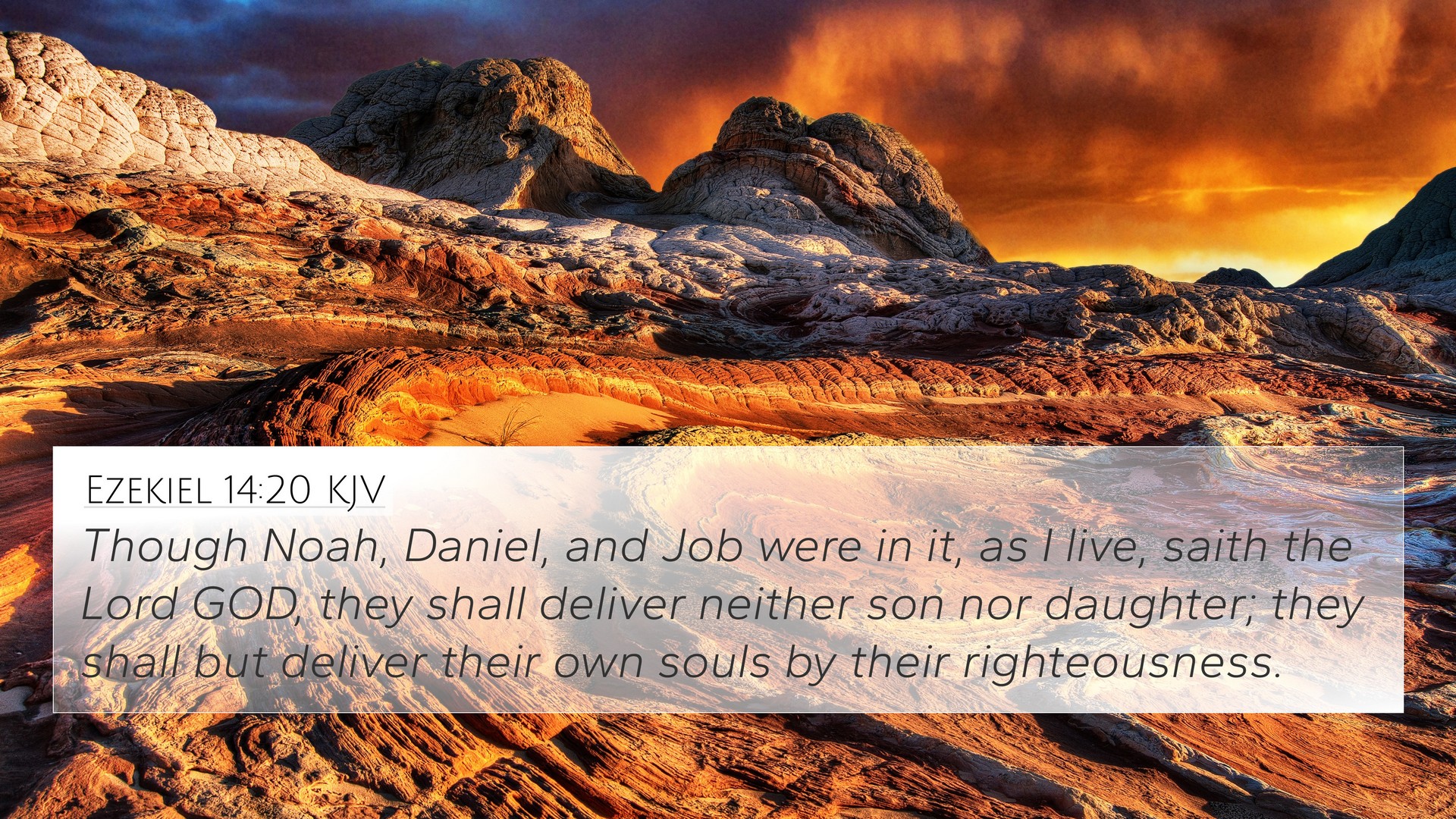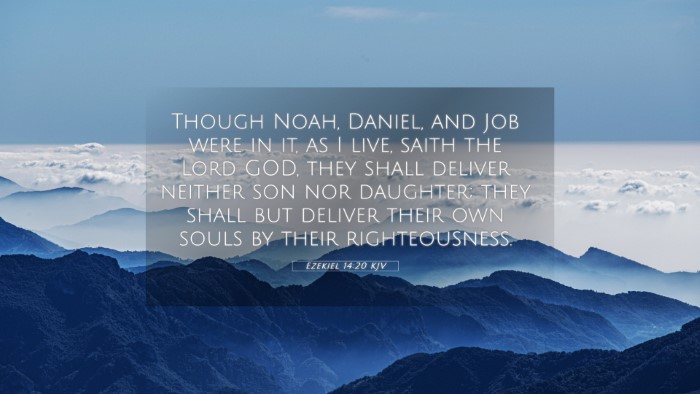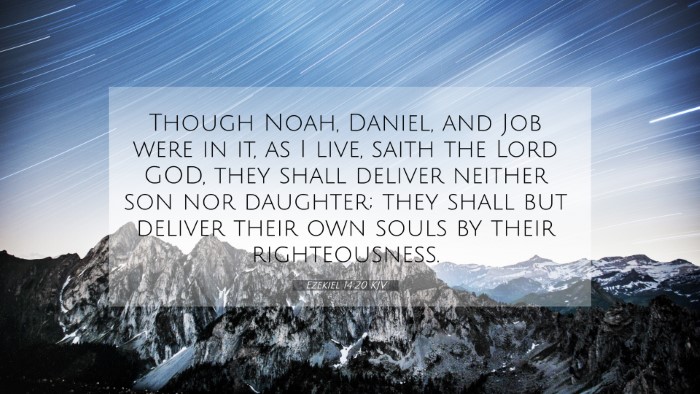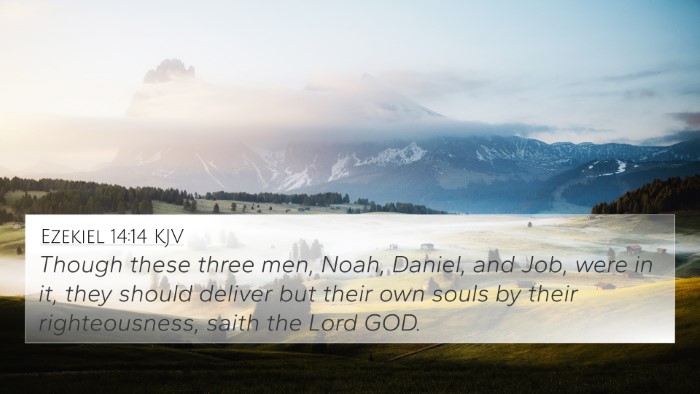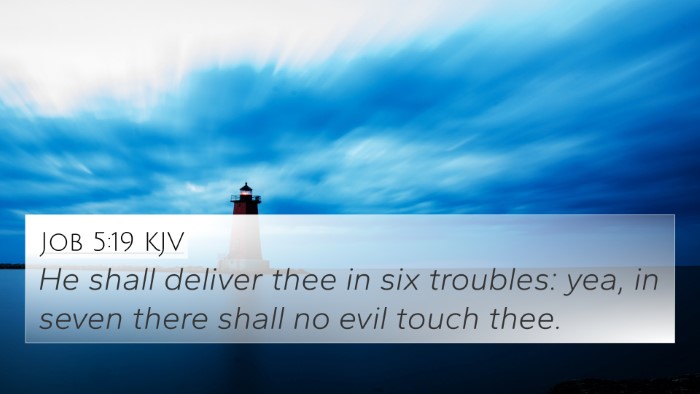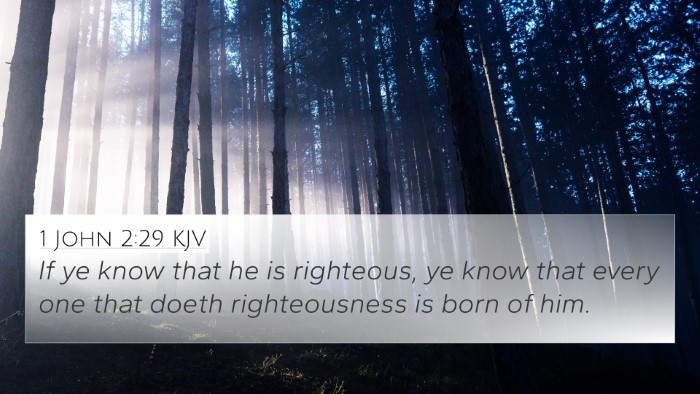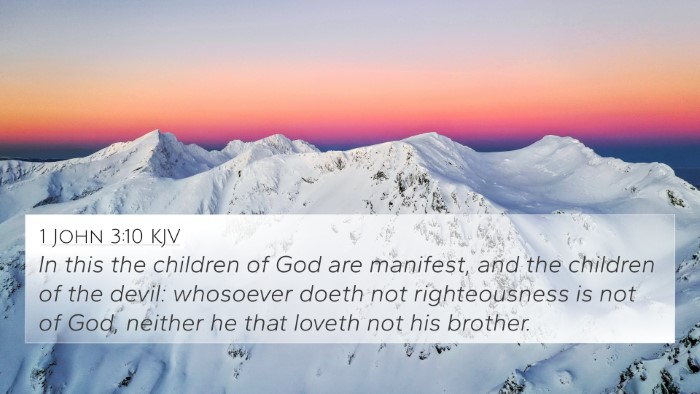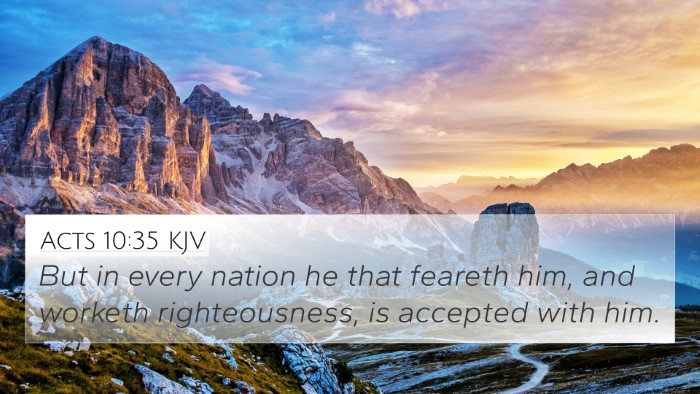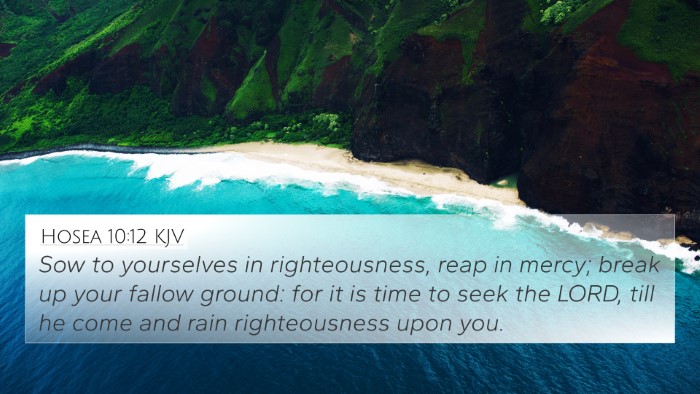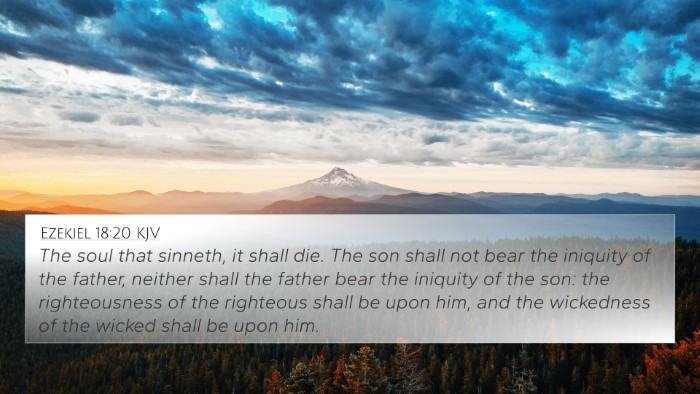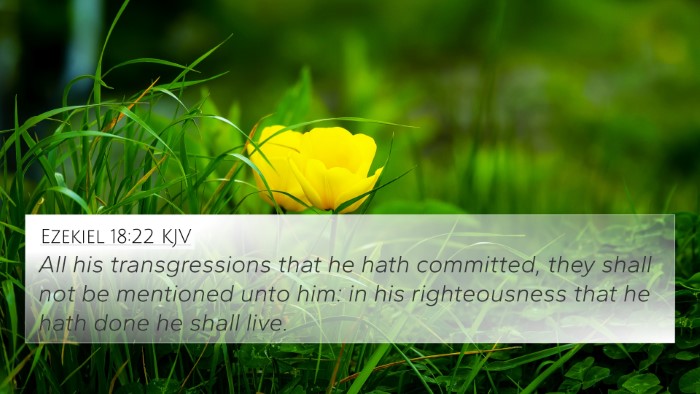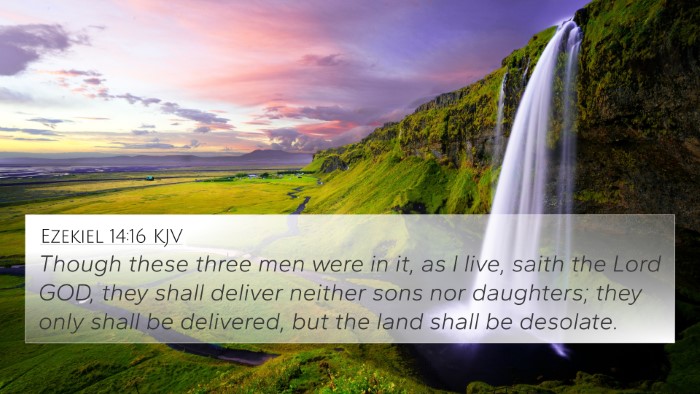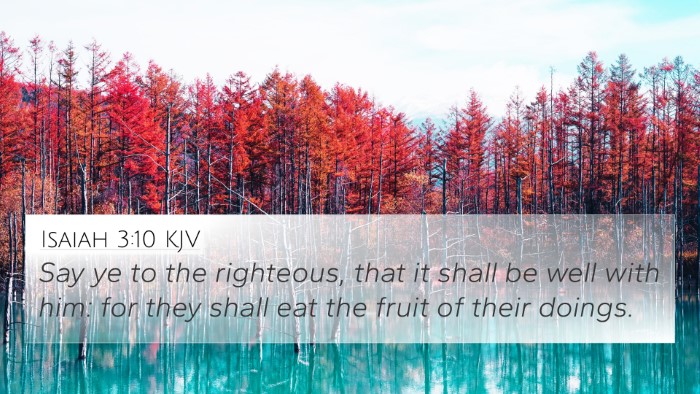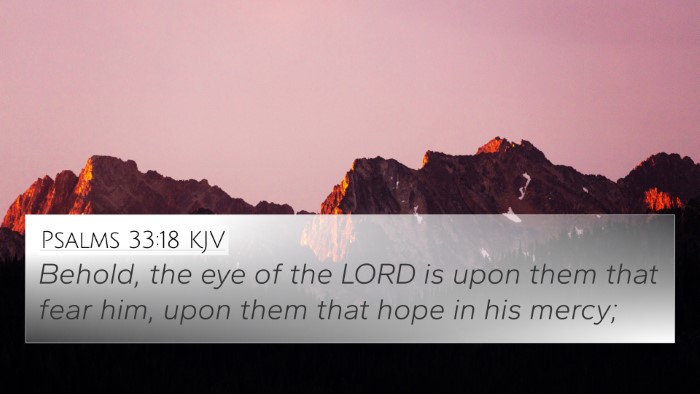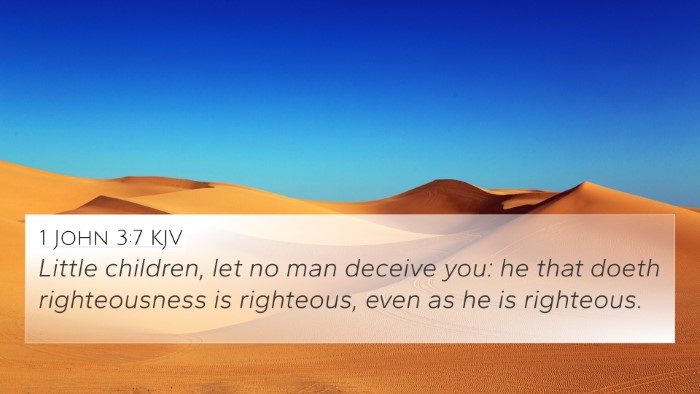Ezekiel 14:20 - Summary and Interpretation
Bible Verse: Ezekiel 14:20
"Though Noah, Daniel, and Job were in it, as I live, saith the Lord God, they shall deliver neither son nor daughter; they shall but deliver their own souls by their righteousness."
Overview
Ezekiel 14:20 emphasizes the limits of individual righteousness in the face of corporate judgment. In this verse, God communicates through the prophet Ezekiel that even the most righteous individuals, like Noah, Daniel, and Job, cannot save others from impending judgment when it falls upon a rebellious nation. The focus here is on personal responsibility and the profound consequences of sin on a community level.
Commentary Insights
-
Matthew Henry:
Matthew Henry explains that the verse underscores the idea that the known righteousness of these men cannot be a substitute for the repentance of the community. He highlights the contrast between personal righteousness and communal sin, emphasizing that each individual must stand before God for their own actions.
-
Albert Barnes:
Albert Barnes notes the significance of the three figures mentioned—Noah, Daniel, and Job—as exemplars of righteousness. He remarks that while their righteousness might have saved their own souls, it does not extend to their families or the nation in this instance, illustrating the severity of God’s judgment against corporate sin.
-
Adam Clarke:
Adam Clarke comments on the irony of the situation, where such righteous individuals live within a corrupt society. He stresses the notion that righteousness can affect personal salvation but cannot mitigate the broader divine judgment designed for a community that remains obstinate against divine will.
Key Themes
- Individual vs. Corporate Responsibility: The verse points to the dichotomy between individual righteousness and the collective judgment faced by the unjust.
- Righteousness: The examples of Noah, Daniel, and Job reflect the theme of righteousness that is essential for personal salvation, even amidst a sinful society.
- Divine Judgment: The passage reveals the reality of divine judgment whereby God holds individuals and communities accountable for their actions.
Bible Verse Cross-References
- Noah's Righteousness: Genesis 6:8-9 - "But Noah found grace in the eyes of the Lord." The account of Noah emphasizes that even in a corrupt world, individual righteousness counts.
- Daniel's Integrity: Daniel 6:10 - "He knelt down on his knees three times that day, and prayed and gave thanks before his God." Daniel's faithfulness exemplifies personal integrity amidst persecution.
- Job's Patience: Job 1:1 - "There was a man in the land of Uz, whose name was Job; and that man was perfect and upright..." Job’s unwavering faithfulness is a testament to personal righteousness.
- 2 Corinthians 5:10: "For we must all appear before the judgment seat of Christ..." This verse aligns with individual accountability before God.
- Romans 14:12: "So then each of us will give an account of himself to God." Here, it reinforces the individual nature of standing before God’s judgment.
- Jeremiah 15:1: "Then the Lord said to me: 'Even if Moses and Samuel stood before me, my heart would not go out to this people.'" This verse emphasizes that even the most righteous cannot alter God’s will for a sinful collective.
- Hebrews 11:7: "By faith Noah, when warned about things not yet seen, in holy fear built an ark..." Noah's actions are noted not only for personal righteousness but for his response to God's command.
- Ezekiel 18:30: "Repent and turn from all your offenses..." The call to individual repentance emphasizes the need for personal accountability in the context of community judgment.
- Matthew 24:37-39: Illustrates the days of Noah as a reference point for righteousness versus a sinful world.
- 1 Peter 4:18: "And if the righteous are scarcely saved, what will become of the ungodly and the sinner?" This verse connects the difficulty of salvation even for the righteous, revealing the weight of judgment.
Thematic Bible Verse Connections
This verse opens up various thematic connections throughout the scriptures that explore the nature of faith, judgment, and personal accountability:
- Faith in Divine Justice: Numerous passages discuss God’s justice, including Psalm 73:28 and Isaiah 61:8.
- God’s Mercy vs. Judgment: This theme is echoed in Lamentations 3:22-23 and James 2:13.
- The Role of Prophets: The warnings of prophets throughout scriptures embody the message of turning from iniquity, exemplified in Isaiah, Jeremiah, and Ezekiel himself.
- Intercessory Prayer: The passages in Exodus 32:10-14 showcase how Moses attempted, yet could not change God's decision when judgment was set.
Conclusion
In conclusion, Ezekiel 14:20 serves as a profound reminder of the individual’s responsibility in the sight of God. The examples of Noah, Daniel, and Job depict that righteousness is crucial for salvation, yet it is limited in its scope to save others. The passage starkly contrasts individual righteousness with the fate of a society impervious to change. This verse engages readers in deeper study through cross-referencing with various biblical texts, enhancing the understanding of divine judgment and mercy.
